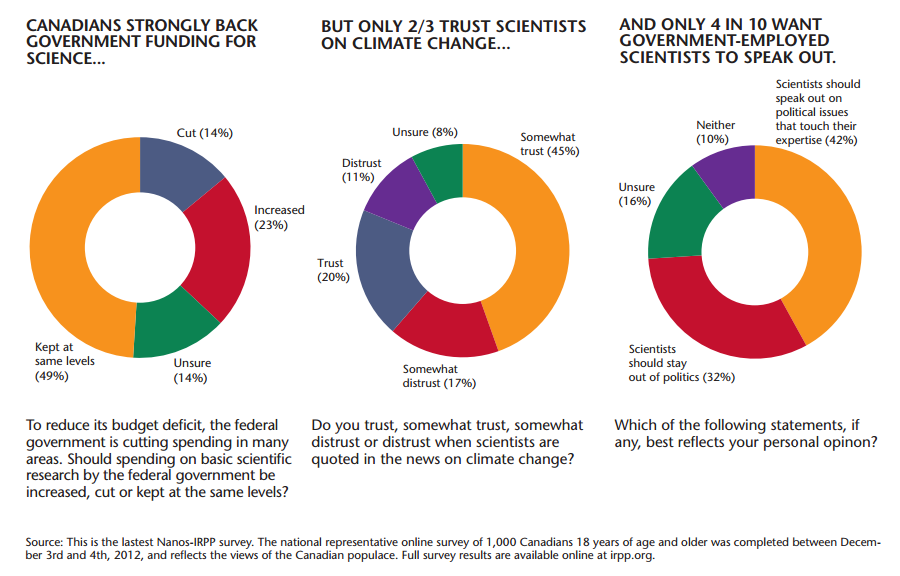
Canadians are big supporters of science. A survey conducted for Policy Options in December 2012 shows that even in times of government budget cuts, half of Canadians want government funding for science sustained at current levels, and almost a quarter (23 percent) want spending increased. That appears to reflect a broad confidence that science is essential to solving our economic and social problems, says research director Nik Nanos of Nanos Research, which conducted the survey.
But ask about trust in scientists, and some of that enthusiasm dissipates. Two-thirds of Canadians say they trust scientists who are quoted in news reports discussing climate change. Though that represents a clear majority, the fact that a third of Canadians don’t trust scientists on climate change is significant, given the consensus within the scientific community on the broad research surrounding the issue. And only one in six Canadians trust scientists when they are quoted discussing genetically modified crops (trust is highest — 78 percent — when it comes to scientists discussing new energy technologies).
This hesitation may reflect the divisive politics that envelops so much 21st century science. Climate change generates perhaps the loudest debate. But in Canada, politics has intruded upon everything from the science of fisheries to the oil sands, with the Tory government trying to control what publicly funded scientists are able to say in the media and in public about their work.
The federal government’s attempt to suppress its own scientists has been widely criticized in the media. Yet our survey shows only 4 in 10 Canadians (42 percent) believe that government-employed scientists should be allowed to speak out on political issues that touch their area of expertise, while 32 percent say these scientists should stay out of politics. The results suggest that while Canadians may desire science-driven solutions to public policy, the role of scientists in how we get there is highly contested.
Photo: Shutterstock by Gorodenkoff








